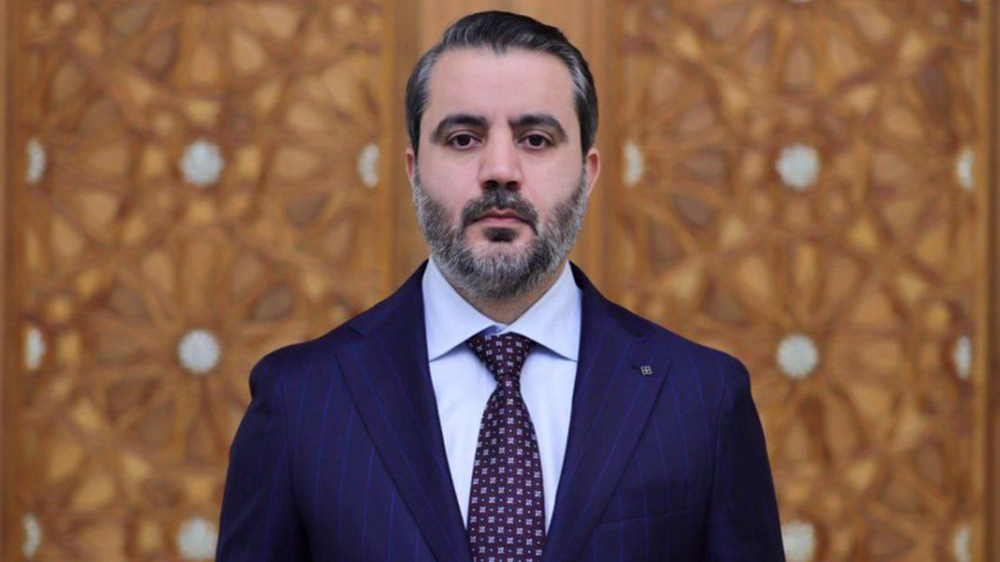Turkey gains control of border strip inside Syria's Afrin, sends special forces for new fight
The Turkish army has taken control of the outer edge of Syria’s northwestern region of Afrin during its ongoing cross-border offensive against the Kurdish People’s Protection Units (YPG).
Turkish state media reported on Monday that the military and its allied militants had pushed some Kurdish YPG forces back from the frontier near the Turkish border.
According to the state-run Anadolu news agency, Turkey has captured 115 “strategic points” and 87 villages since launching its operation in the Syrian region.
YPG forces said that five civilians were killed after Turkish warplanes struck a village near Jandaris in the southwest of Afrin.
A YPG-led alliance said that fighting raged on multiple fronts around Afrin. The YPG forms the backbone of the so-called Syrian Democratic Forces (SDF), a US-backed anti-Damascus militant group.
The so-called Syrian Observatory for Human Rights said that Turkish troops now held a continuous strip on the edge of Afrin. The UK-based monitoring group also said that at least five Turkish soldiers were killed during fierce fighting in the space of 24 hours.
The latest advance opens a corridor that links territory in Syria’s Aleppo province under the control of militants backed by Turkey with Idlib province, the Arab country's largest remaining militant stronghold.
On Sunday, Turkish President Recep Tayyip Erdogan issued one of his strongest warnings meant for the US, pledging to "break the arms and wings" of Washington-backed militants in Syria.
Turkey launched “Operation Olive Branch” in Afrin last month in a bid to eliminate the YPG, which Ankara views as a terror organization and the Syrian branch of the Kurdistan Workers’ Party (PKK).
Turkey's patience boiled over when the US announced last month its decision to create a 30,000-strong force comprised of Kurdish militants, which would be deployed along the Turkish border.
Operation Olive Branch in Afrin region is Turkey's second major military intervention in Syria during an unprecedented foreign-backed militancy that broke out in 2011.
In August 2016, Turkey began a unilateral military intervention in northern Syria, code-named Operation Euphrates Shield, sending tanks and warplanes across the border. Ankara claimed that its military campaign was aimed at pushing the Daesh terrorist group from Turkey's border with Syria and stopping the advance of Kurdish forces, who were themselves fighting Daesh.

Turkey ended its campaign in northern Syria in March 2017, but at the time did not rule out the possibility of yet another act of military offensive inside the Arab country.
Turkey sends special forces into Afrin for 'new fight'
In a separate development, Turkey said Monday that it had sent special forces into Afrin in anticipation of a "new fight" in urban areas in its operation against Kurdish militants.
An unknown number of gendarmerie and police special forces entered the region on Sunday night. Senior Turkish officials say the forces would take part in urban fighting and holding villages that Turkish forces had seized.
Turkish Deputy Prime Minister Bekir Bozdag, who is also the government spokesman, told the broadcaster NTV that the deployment of police special forces “is in preparation for the new battle that is approaching.”
Turkey says Saturday’s UN Security Council demand for a 30-day truce across Syria does not apply to its offensive in Afrin.
“Some regions such as Eastern Ghouta are part of the UN’s ceasefire decision in Syria, but Afrin is not one of them,” said Bozdag, adding, “The decision will not impact our Olive Branch operation ... in … Afrin region.”
But French President Emmanuel Macron told Erdogan during a telephone call on Monday that the ceasefire did apply to Afrin.
The UN resolution demands all parties “cease hostilities without delay ... for a durable humanitarian pause for at least 30 consecutive days throughout Syria.”
The cessation, however, does not apply to military operations against the Takfiri terrorist groups such as Daesh and al-Qaeda.
‘All wars have rules. All of those rules have been broken’ by Israel
VIDEO | Report flags India’s violation of rights of Rohingya detainees
Turkey's foreign minister meets Syria's de facto leader in Damascus
'Next to impossible' to rescue patients from Gaza's Kamal Adwan Hospital: Director
VIDEO | Vietnam current prosperity
Report blames gasoil exports for shortage at Iranian power plants
VIDEO | Hind Rajab Foundation names Israeli war criminals vacationing after Gaza genocide
VIDEO | Australians rally for Gaza ahead of Christmas festivities












 This makes it easy to access the Press TV website
This makes it easy to access the Press TV website